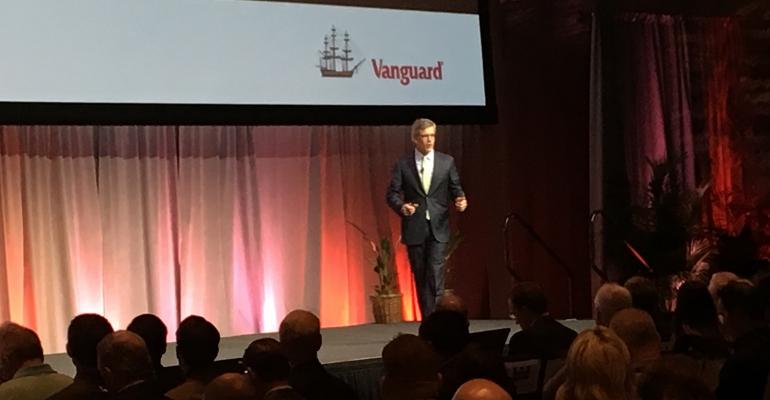Last month at the Inside ETFs conference, Vanguard CEO Tim Buckley told a room full of advisors that many of them would soon be out of work.
The proliferation of low-cost, low-touch automated advice services like Vanguard’s own Personal Advisor Services has already started to erode asset management fees, Buckley said. He added that most advisors are too techno-shocked to adapt and will shutter their businesses when the majority of their clients stampede over to robos and low-cost passive solutions.
It’s true that the financial services industry faces unprecedented changes driven by advances from California’s Silicon Valley and New York’s Silicon Alley. But advisors aren’t standing still, waiting to be out-competed. We’re evolving. We’re embracing the best of fintech automation and showing our value propositions by meeting clients where they are, and untethered by geography and time, giving them financial planning advice that goes well beyond simple investments and a retirement number.
Vanguard’s PAS manages north of $100 billion in assets, but many robos still limp on the path to profitability. Betterment, the largest independent robo, still needed an infusion of $70 million in venture capital funding last October. What’s more, most of these low-touch offerings have never been tested in a down market, a fact that’s easy to overlook in today’s seemingly endless bull run.
I believe the market for robos will balkanize instead of producing a single, clear winner. We’ll see a collection of fully digital services, all pretty much the same, that will cater to introductory investors. Human advisors will thrive as steady hands on the tiller for investors with growing families and complex lives.
Buckley is correct when he predicts complacent advisors will fall by the wayside. For the rest of us, the rise of fintech offers an invaluable window into how our clients interact with the world. A recent survey from EY Fintech on adoption trends found people who use fintech are also more likely to use on-demand services, online content streaming and messaging and video chat. If advisors want to engage with fintech consumers—particularly millennials and other neophyte investors who could be tempted by the low-touch proposition of a robo—they need platforms that can serve advice and analytics on demand. We can also expect Gen Xers, who are typically constrained by time and growing complexities in their lives, will rely on human, financial planning expertise, and empathy. But like the rest of their lives, that human element will be tech-enabled.
Buckley is also right when he suggests advisors can’t rest on the laurels of asset management. We beat the robos when we understand our role is to help our clients when life happens. These services can feed you a questionnaire and build a risk tolerance profile, but they can’t tell you what to do after a divorce or a diagnosis, how to handle a liquidity event or steep market correction or if it’s all right to take that big vacation.
The thriving firms innovate on ways to make this bespoke service available at scale without sacrificing quality. To thrive, advisors need platforms that let them project their human advice and problem-solving power to clients’ mobile devices on demand. They need the tools and technology to help them guide conversations about client goals and reveal their priorities and emotional relationships with money.
Low-cost, low-touch solutions place undeniable pressure on advisors to adapt. But reports of our imminent demise are greatly exaggerated. We can justify our fees in an age of digital disruption by staying relevant and enriching the lives of our clients.
Matt Brinker is chief business development officer and head of acquisitions at United Capital. Follow him at @mkbrinker.





